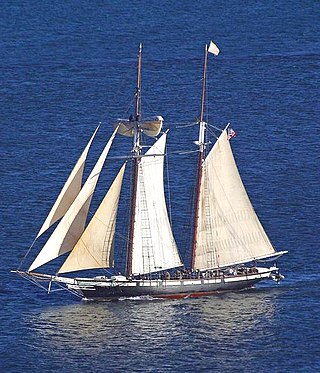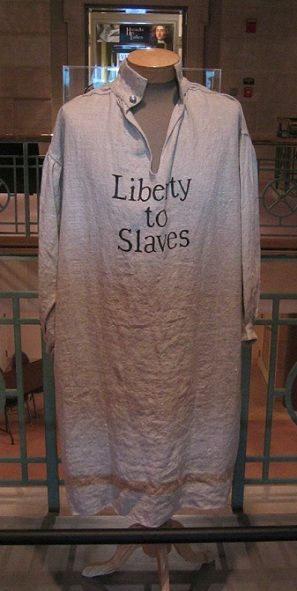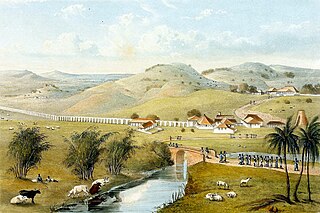Related Research Articles

Creole peoples may refer to different ethnic groups around the world. The term has been used with various meanings, often conflicting or varying from region to region.

In the context of the history of slavery in the Americas, free people of color were primarily people of mixed African, European, and Native American descent who were not enslaved. However, the term also applied to people born free who were primarily of black African descent with little mixture. They were a distinct group of free people of color in the French colonies, including Louisiana and in settlements on Caribbean islands, such as Saint-Domingue (Haiti), St. Lucia, Dominica, Guadeloupe, and Martinique. In these territories and major cities, particularly New Orleans, and those cities held by the Spanish, a substantial third class of primarily mixed-race, free people developed. These colonial societies classified mixed-race people in a variety of ways, generally related to visible features and to the proportion of African ancestry. Racial classifications were numerous in Latin America.

Arthur Thistlewood was an English radical activist and conspirator in the Cato Street Conspiracy. He planned to murder the cabinet, but there was a spy and he was apprehended with 12 other conspirators. He killed a policeman during the raid. He was executed for treason.

Slavery in the British and French Caribbean refers to slavery in the parts of the Caribbean dominated by France or the British Empire.

A Baltimore clipper is a fast sailing ship historically built on the mid-Atlantic seaboard of the United States, especially at the port of Baltimore, Maryland. An early form of clipper, the name is most commonly applied to two-masted schooners and brigantines. These vessels may also be referred to as Baltimore Flyers.
Thomas Thistlewood was an English-born planter and diarist who spent the majority of his life in the British colony of Jamaica. Born in Tupholme, Lincolnshire, Thistlewood migrated to the western end of Jamaica where he worked as a plantation overseer before acquiring ownership over several slave plantations. During his time in Jamaica, he kept a diary in which Thistlewood recorded numerous aspects of his life. Eventually spanning over 14,000 pages, the diary detailed the brutal mistreatment of the slaves he held authority over, first as an overseer then as a plantation owner.

Black Loyalists were people of African descent who sided with the Loyalists during the American Revolutionary War. In particular, the term refers to men who escaped enslavement by Patriot masters and served on the Loyalist side because of the Crown's guarantee of freedom.
An English-based creole language is a creole language for which English was the lexifier, meaning that at the time of its formation the vocabulary of English served as the basis for the majority of the creole's lexicon. Most English creoles were formed in British colonies, following the great expansion of British naval military power and trade in the 17th, 18th and 19th centuries. The main categories of English-based creoles are Atlantic and Pacific.

Henry S. Johnson was an American attorney and politician who served as the fifth Governor of Louisiana (1824–1828). He also served as a United States representative and as a United States senator. He participated in the Atlantic slave trade.

Tacky's War, Tacky's Revolt, or Tacky's Rebellion was a widespread fight for their freedom by enslaved people in the British Colony of Jamaica in the 1760s. Led by Akan people —tribes including Ashanti, Fanti, Nzema and Akyem—it was loosely led by a Fanti royal and warlord called Tacky (TwiTakyi) in eastern Jamaica.

Atlantic Creole is a cultural identifier of those with origins in the transatlantic settlement of the Americas via Europe and Africa.
The history of African-American settlement in Africa extends to the beginnings of ex-slave repatriation to Africa from European colonies in the Americas.
Golden Grove is a settlement in the parish of Saint Thomas, Jamaica. Historically a sugar plantation, it had a population of 3,057 in 2009.
Mark C. Hunter is a Canadian naval historian and currently an employee of the Government of Newfoundland and Labrador.
Cudjoe, Codjoe or Captain Cudjoe, sometimes spelled Cudjo – corresponding to the Akan day name Kojo, Codjoe or Kwadwo – was a Maroon leader in Jamaica during the time of Nanny of the Maroons. In Twi, Cudjoe or Kojo is the name given to a boy born on a Monday. He has been described as "the greatest of the Maroon leaders."
Maryland's colonial economic history is marked by a heavy reliance on the tobacco crop. Though it would remain a slave state until the end of the Civil War, it was not until the 1700s that labor began to drive agricultural production in the colony. The colonial-era would also see Maryland begin early industrialization and urbanization, experiment with different monetary systems, and make efforts to diversify its economy.

The Sierra Leone Creole people are an ethnic group of Sierra Leone. The Sierra Leone Creole people are descendants of freed African-American, Afro-Caribbean, and Liberated African slaves who settled in the Western Area of Sierra Leone between 1787 and about 1885. The colony was established by the British, supported by abolitionists, under the Sierra Leone Company as a place for freedmen. The settlers called their new settlement Freetown. Today, the Sierra Leone Creoles are 1.2 percent of the population of Sierra Leone.
Kromanti dance or Kromanti play is a Jamaican Maroon religious ceremony practiced by Jamaican Maroons. It is rooted in traditional African music and religious practices, especially those of the Akan people of Ghana. The name Kromanti derives from Kormantin where a historical slave fort in the coast of Ghana was located. Many slaves shipped to Jamaica during the Atlantic Slave trade originated from present–day Ghana in West Africa.
References
- ↑ "Professor Trevor Burnard - The University of Hull". www.hull.ac.uk. Retrieved 24 March 2022.
- ↑ "Q&A with Professor Trevor Burnard". Ahaecr.wordpress.com. 13 February 2018. Retrieved 2 May 2019.
- ↑ "Former Member of Staff: Professor Trevor Burnard". Warwick.ac.uk. Retrieved 2 May 2019.
- ↑ "PROF Trevor Burnard - The University of Melbourne". Findanexpert.unimelb.edu.au. Retrieved 2 May 2019.
- ↑ "The Plantation Machine - Trevor Burnard, John Garrigus". Upenn.edu. Retrieved 2 May 2019.
- ↑ "Kelley on Burnard, 'Mastery, Tyranny, and Desire: Thomas Thistlewood and His Slaves in the Anglo Jamaican World' and Trevor Burnard, 'Mastery, Tyranny, and Desire: Thomas Thistlewood and His Slaves in the Anglo-Jamaican World' - H-Atlantic - H-Net". Networks.h-net.org. Retrieved 2 May 2019.
- ↑ "Creole Gentlemen: The Maryland Elite, 1691-1776". CRC Press. Retrieved 2 May 2019.
- ↑ Evans, Emory G. (1 June 2003). "Creole Gentlemen: The Maryland Elite, 1691– 1776". Journal of American History. 90 (1): 205–206. doi:10.2307/3659810. JSTOR 3659810 . Retrieved 2 May 2019.
- ↑ Murphy, Thomas; J, S. (1 February 2003). "Trevor Burnard. Creole Gentlemen: The Maryland Elite, 1691–1776. (New World in the Atlantic World.) New York: Routledge. 2002. Pp. ix, 278. Cloth $85.00, paper $23.95". The American Historical Review. 108 (1): 185. doi:10.1086/ahr/108.1.185.
- ↑ Planters, Merchants, and Slaves. Press.uchicago.edu. Retrieved 2 May 2019.